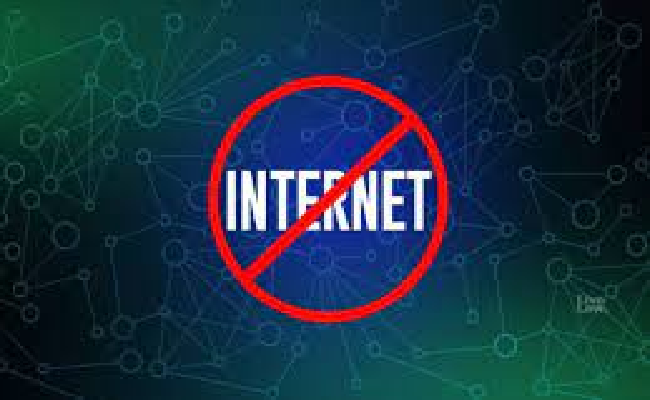Shubhman Gill slams maiden Test 200 in 311 balls against England
.gif)
.gif)

The international digital rights organization Access Now said in a report published on Tuesday in collaboration with the #KeepItOn coalition that for the fifth year in a row ndia topped the list of global internet shutdowns in 2022 with at least 84 outages.
The report said India was responsible for around 58% of all documented outages worldwide since 2016. “Authorities [last year] disrupted Internet access in Jammu and Kashmir at least 49 times, including 16 back-to-back orders for three days. curfew-style shutdowns in January and February,” the report said.
There were 12 shutdowns in Rajasthan, seven in West Bengal and four each in Haryana and Jharkhand. The report said authorities "interfered with access during major events such as protests, conflicts, school exams and elections". He added that although outages were lower than in 2021, the Union Government's refusal to document and publish their orders and technical problems in tracking likely meant that not all outages were recorded.
Raman Jit Singh Chima, Access Now's senior international advisor and policy director for Asia Pacific, said India shuts down the internet more than any other country in the world. “That's 84 attacks on basic rights in the world's largest democracy. For the country holding the G20 presidency, and on the eve of its crucial general election in 2024, these disruptions threaten the future of India's tech economy and digital livelihood ambitions – a truly global embarrassment.
Felicia Anthonio, campaign manager of the #KeepItOn coalition of organizations around the world fighting internet shutdowns, said governments use internet shutdowns as weapons of control and shields of impunity. “In 2022, from targeted blocking in the Jammu and Kashmir region to sweeping shutdowns that sought to crush [] public protest, authorities in India have been working hard to control the Indian online sphere even more. But he's slowly learning that the world is watching and people are fighting back."
The Parliamentary Standing Committee on Communications and Information Technology this month asked the Department of Telecommunications (DoT) and the Union Ministry of Home Affairs (MHA) to ensure that states and Union Territories strictly follow the Supreme Court's rules and directions in imposing telecom or internet shutdowns. In 2020, the Supreme Court declared internet access a fundamental right when it dismissed the government over the telecom blackout in Jammu and Kashmir. He said the blackout could not go on indefinitely. The court said blackout orders must now be made public with specific reasons and should be proportionate to the concerns that warrant such suspension.
In its report, the parliamentary panel highlighted the need for a mechanism to maintain a centralized database of all shutdown orders as per its recommendations. The panel reported that no effort was made to implement the recommendations. "Neither DoT nor MHA maintains any centralized data and is not aware of the number of internet shutdowns by states." The panel was looking for a study to assess the impact of internet shutdowns. "Frequent internet shutdowns without any empirical study to demonstrate the effectiveness of internet shutdowns in controlling law and order, civil unrest, etc. is of great concern to the committee."